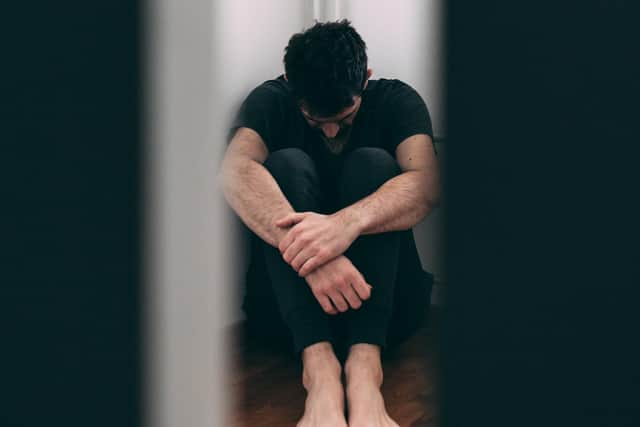Covid Scotland: Lockdown loneliness linked to rise in suicides among single people in 2020
While the rate of suicides last year was slightly higher than the average across 2015-19, the increase was not large enough to say for certain whether the pandemic had an impact on this, the report from Public Health Scotland (PHS) found.
But the number of deaths among single people was higher, which PHS linked to a possible risk of loneliness during lockdowns.
Advertisement
Hide AdAdvertisement
Hide Ad"Given that single people are more likely to be living alone than people who are married/partnered, it may be reasonably hypothesised that there was a higher prevalence of loneliness/isolation among people who died by suicide during the Covid period (compared to the pre-Covid period),” the report states.


"Loneliness (along with other types of social disconnectedness) is a known risk factor for suicide.”
There were also more suicide deaths outside the home, a finding that PHS said it needed more information about before drawing conclusions.
The number of suicides in 2020 was higher in the period from July-September than in previous years. PHS suggests a number of possible reasons for this, including actions delayed by the lockdowns enforced between March and May.
There were 792 deaths due to probable suicide registered in Scotland in 2020. This represents a rate of 15.2 per 100,000, compared to 14.2 in the period 2015-19.
PHS found no significant difference last year compared to previous years in terms of the likelihood of contact with healthcare services before suicide.
However, over-65s were more likely to have been prescribed mental health drugs in the year before death in 2020 compared to previous years, and men who died in 2020 were less likely to have called NHS 24.
The report also found no difference in distribution by age, sex, deprivation and employment status in 2020 compared to previous years.
Advertisement
Hide AdAdvertisement
Hide Ad"Despite evidence about the impact of the pandemic on population mental health and well-being, there is no evidence of a short-term increase in suicide,” the report states.
"Whilst welcome news, we need to remain vigilant and plan for a possible delayed impact of the pandemic on the determinants of suicide, e.g., rising unemployment and poverty.”
If you or someone you know needs help now, call Samaritans on 116 123, NHS 24 on 111 or Breathing Space on 0800 838537.
A message from the Editor:
Thank you for reading this article. We're more reliant on your support than ever as the shift in consumer habits brought about by coronavirus impacts our advertisers.
If you haven't already, please consider supporting our trusted, fact-checked journalism by taking out a digital subscription.
Comments
Want to join the conversation? Please or to comment on this article.
